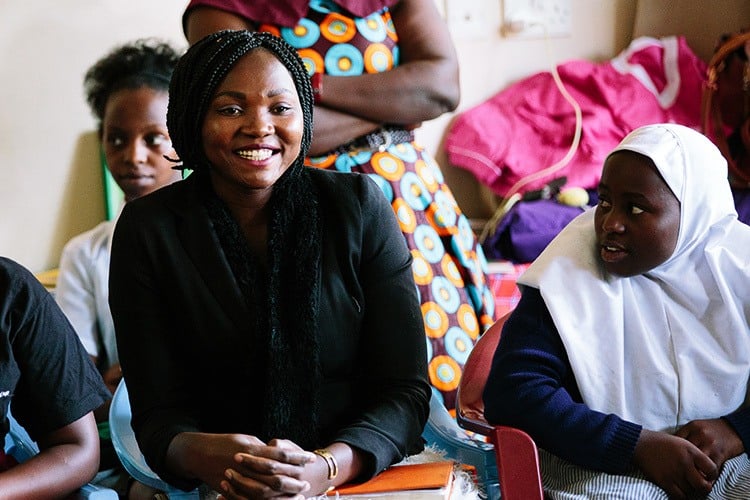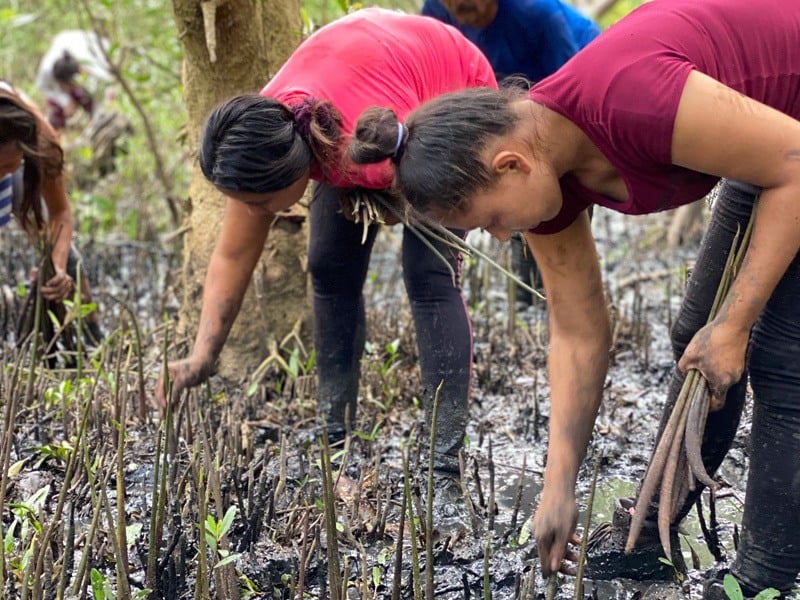Haiti is in crisis. After more than ten years of rule by a corrupt, violent, U.S.-backed regime, the country’s government has essentially collapsed. Gangs—operating with the support of politicians and elites—control many regions of the country, terrorizing civilians with kidnappings and massacres of entire communities. This gang rule has led to shortages of food, water and fuel, and a spreading cholera outbreak. The situation is dire.
Past foreign interventions, including from the United States, have left trauma and disease, created economic instability and interfered with the democratic process by propping up leaders who were never chosen by the people resulting in a cycle of instability and violence. President Biden has legitimized the current acting prime minister Ariel Henry, a member of the regime that has governed Haiti over the past decade and contributed to the current crisis by dismantling democratic institutions along with funding and arming gangs largely responsible for the insecurity there. No one reasonably expects that the same regime responsible for creating this crisis will has any desire to resolve it, or undertake free, fair and participatory elections. Adding further to the concern, many in the Biden Administration have voiced support for a military intervention to deal with the gangs, which will not address the root causes of the country’s
Hope for a peaceful, democratic future
Despite everything Haiti and the Haitian people have endured, there is still hope. A group representing the diversity of Haitian society — farmers, lawyers, activists, journalists, religious leaders and others — has come together to do what few others have been able to achieve in Haiti: build consensus on how to resuscitate their country’s floundering democracy. But the Biden administration is standing in the way of this progress.
The Montana Accord, a groundbreaking agreement brokered by brave leaders in Haitian civil society, is the path forward. The Haitian leaders involved — representing the diversity of Haitian society, from farmers to religious leaders, journalists to activists — spent countless hours over the past year listening to the needs of their fellow Haitians to create a blueprint for a transitional government that truly represents the nation. Yet the Biden administration continues to block the progress of the Montana Accord by providing unfettered support for the extremely unpopular and illegitimate acting Prime Minister Ariel Henry. Henry gained power, not through any constitutional process, but because the U.S. and allies declared by tweet that they recognized him as the Prime Minister.
AJWS supports the calls of Haitians, Haitian Americans and advocates for democracy as they urge the Biden administration to:
- Support the Haitian people’s desire for democracy, peace and economic stability by prioritizing the recommendations and blueprint established through the Montana Accord;
- Offer targeted support for the Haitian police to keep people safe from criminal gangs;
- Pinpoint corruption and support for gangs among Haitian government officials and economic elites by freezing assets and deploying sanctions; and
- Treat Haitians seeking safety with respect by halting deportations, releasing Haitians who were detained and respecting the human rights of all those fleeing danger and instability.
The Grassroots Activists Pushing for a More Just Global Response
To support the Commission’s success, AJWS’s team helped form a coalition of individuals and organizations working to shift U.S. policy and media on Haiti. We collaborated with Haitian civil society leaders to uplift their voices in U.S. publications, including in Foreign Affairs and The New York Times. And we planned several Congressional briefings featuring our Haitian grantees, which have led to invitations to testify before Congress and the U.N. Security Council.
In April 2022, after months of advocacy and building political alliances, AJWS helped support meetings between AJWS partners and top U.S. government officials. Following these meetings, we observed a noticeable shift in U.S. State Department policy, with the U.S. Embassy in Haiti urging Henry to negotiate with the Commission and bringing Haiti one step closer to democracy.
Since then, our partners have continued to meet with U.S. policymakers both in person and virtually, and work to have their voice heard in the halls of power in the U.S. and around the world. We will continue to support them as they work towards a better day for Haiti and the Haitian people.








